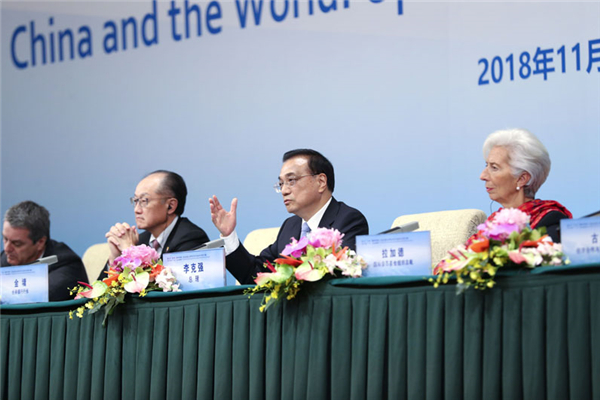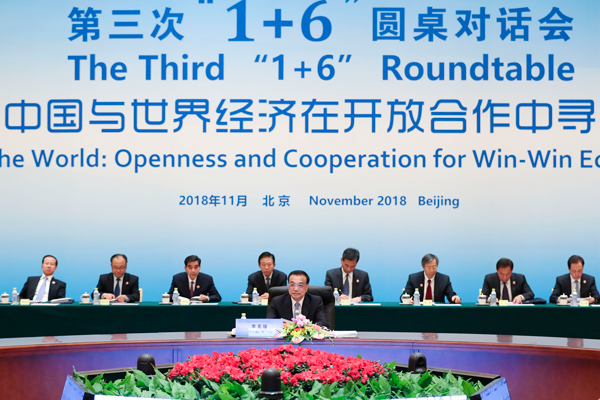China spearheads mobile payment
2018-11-08
english.gov.cn
Premier Li Keqiang and six leaders of major international financial institutions co-chaired the third “1+6” roundtable meeting in Beijing on Nov 6.
At the meeting, one leader raised a query about China’s approach to obtain momentous progress in mobile payment.
Although the fundamental technologies of mobile payment originated from developed countries, China has made unprecedented progress in this field, the Premier said.
“We used to be surrounded by various concerns about the potential risks of mobile payment when it started, but the Chinese government decided to give a go of it, with inclusive and prudent administrative methods,” Premier Li said.
Inclusive and prudent administrative methods, the Premier added, can be compared to crossing the river by feeling the stones. In the meantime, the government will allow the industry to develop with optimum autonomy and help make constant tweaks along the way.
It’s noteworthy that online transactions, compared to cash ones, are way more manageable by virtue of its traceable records. With mobile payment being increasingly widely available in China, substantial convenience has been ushered in transactions.
Apart from inclusive and prudent administrative methods, the bank industry was deterred from a monopoly during China’s development of mobile payment.
Since small enterprises and individual citizens make up the majority of the beneficiary community, mobile payment could also promote inclusive finance and equality, Premier Li said.
China’s thriving digital economy, including mobile payment, drew the attention of many international finance institution leaders.
World Bank President Jim Yong Kim fully affirmed China’s innovative application of digital economy to regions in abject poverty.
The rocketing development of e-commerce in Southwest China’s Guizhou province was laudable, Kim said. He found it a remarkable approach to alleviate poverty.
The Premier talked about a couple he met in Guizhou at the meeting: “They couldn’t even make ends meet while working in eastern cities, and now they can earn 30,000 yuan a month by selling local agricultural products to the world on e-commerce platforms after coming back home to Guizhou.”
“The capital market allows local people to acquire more capital and access to the market through e-commerce, which reduces the local poverty rate and reflects the benefits of free trade,” Kim said.
He added that the rapid development of China’s economy has attracted worldwide attention, and what is more astonishing is its commitment to benefit the people in its development.
The World Bank will continue to develop cooperative relations with China and promote China’s experience in these areas, he said.
It is hard to achieve great benefits without combining innovation with the market, Premier Li said, adding that a huge market will be needed for the commercialization and wide adoption of mobile payments, and China is the largest market around the world.
The huge market not only provides abundant business opportunities, but also forces the escalation of technology research and development, he added.
He also emphasized that China is willing to strengthen cooperation in financial technology innovation with developed countries, and strictly protect intellectual property rights (IPR) to create a business environment that is more conducive to innovation and cooperation.
The Premier said cases should be treated individually, while emphasizing the importance of protecting IPRs.
The original innovative IPRs must not be violated, but some knowledge and technology can be made available to the public through an open-source approach, which may expand the market and bring greater benefits to enterprises, Premier Li said.
The Premier also promised that China will definitely strengthen IPR protection to preserve the legitimate rights of original innovative enterprises and promote China’s transformation and upgrading.




